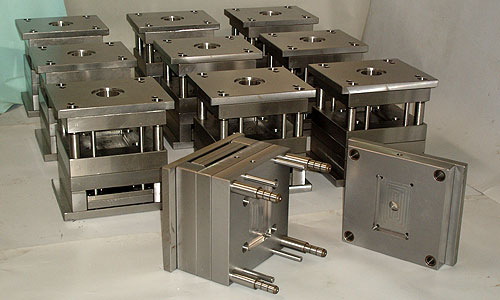The shift towards sustainable energy sources is a global phenomenon, and South Korea is no exception. As the country makes strides in its green energy transition, the demand for copper—a crucial component in renewable energy technologies—is on the rise. This article will explore the factors driving the increasing demand for copper in South Korea, its implications for the economy, and what it means for the sustainable energy landscape.
Understanding the Role of Copper in Green Energy
Copper is an essential material in many technologies that are integral to the green energy movement, including solar panels, wind turbines, and electric vehicles (EVs). Its unique properties, such as excellent electrical conductivity and corrosion resistance, make copper an ideal choice for these applications. As South Korea aims to reduce its carbon footprint and invest more in renewable energy, the need for copper is expected to surge.
Government Initiatives and Policy Framework
The South Korean government has introduced various policies aimed at promoting renewable energy and reducing reliance on fossil fuels. The Green New Deal initiative is one such program that focuses on enhancing the economy while addressing environmental challenges. As part of this initiative, significant investments are made in renewable energy infrastructures, such as solar and wind power, which rely heavily on copper.
These government policies not only drive demand for copper but also create a ripple effect across various sectors, ultimately leading to economic growth and job creation in sustainable industries. With South Korea setting a goal to achieve carbon neutrality by 2050, the demand for copper is projected to continue increasing in the coming years.
The Growing Electric Vehicle Market
One of the most significant contributors to the rising demand for copper in South Korea is the booming electric vehicle market. EVs require a substantial amount of copper—approximately 4 times more than traditional vehicles—to power electric motors and battery systems. As major automakers in South Korea, such as Hyundai and Kia, ramp up their production of electric vehicles, the need for copper will be more critical than ever.
South Korea's commitment to promoting electric vehicles further emphasizes the importance of copper. Government incentives and investments in EV charging infrastructure are essential components of this expansion, ultimately leading to higher copper consumption in the automotive sector.
International Copper Supply Chains
While South Korea is investing in its green energy transition, the nation is also dependent on international copper supply chains. As the global demand for copper rises, supply constraints could pose challenges. Mining companies around the world are struggling to keep up with this demand, leading to price fluctuations and potential shortages.
South Korea must strategically position itself to secure a stable copper supply, particularly as it aims to become a leader in green technologies. This will require strong relationships with copper-producing nations and investments in alternative sources of copper and recycling initiatives.
Challenges in Sustainable Copper Sourcing
As demand for copper rises, so do concerns about its sourcing and environmental impact. Traditional copper mining practices have been linked to deforestation, habitat destruction, and significant carbon emissions. South Korea, in its commitment to sustainability, must address these challenges head-on.
Investments in sustainable mining practices and recycling technologies are crucial in mitigating the environmental impacts associated with copper extraction. By promoting circular economy principles, South Korea can preserve resources while simultaneously satisfying its growing demand for copper.
The Future of Copper in South Korea's Energy Landscape
As the green energy transition progresses, the role of copper is expected to amplify. From expanding renewable energy infrastructure to enhancing electric vehicle production, the implications of increased copper demand will shape South Korea's economic and energy future.
Moreover, as consumer awareness regarding sustainability grows, industries must adapt to meet stricter environmental standards and embrace responsible sourcing. Companies that invest in sustainable practices will not only contribute to environmental protection but can also make themselves more attractive in an increasingly eco-conscious market.
Conclusion
The rising demand for copper in South Korea reflects the nation’s dedication to transforming its energy landscape. As government initiatives and private sector investments accelerate the shift toward renewable energy and electric vehicles, copper will continue to play a vital role in achieving these goals. However, challenges related to supply, sourcing practices, and environmental considerations must be carefully navigated to ensure a sustainable transition. South Korea's ability to secure stable copper supplies while promoting ethical sourcing will ultimately dictate its success in leading the charge towards a greener future.
FAQ
- What is the primary use of copper in green energy technologies?
Copper is primarily used in solar panels, wind turbines, and electric vehicles due to its excellent electrical conductivity and durability. - How does government policy influence copper demand in South Korea?
Government policies, such as the Green New Deal, promote renewable energy investments, directly increasing the demand for copper. - What challenges does South Korea face regarding copper supply?
South Korea faces challenges related to international copper supply chains, including price volatility and potential shortages as global demand rises. - What measures can be taken to ensure sustainable copper sourcing?
Investing in sustainable mining practices, promoting recycling technologies, and fostering strong international partnerships can help ensure sustainable copper sourcing. - Why is copper essential for the electric vehicle market?
Electric vehicles rely heavily on copper for their electric motors and battery systems, consuming significantly more copper than traditional vehicles.

